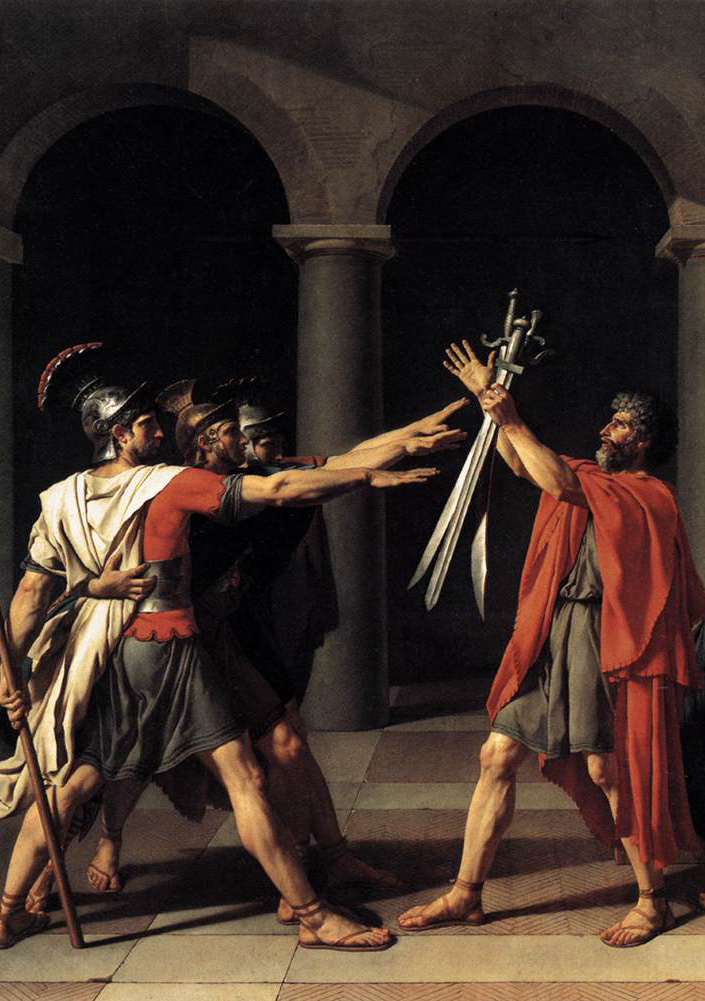Albert Lindemann is perhaps the only Jewish scholar who, unlike most Jewish pundits, acknowledges the reasons why they’ve been so disliked. No ellipsis added between unquoted paragraphs:
Esau’s Tears: Modern Anti-Semitism and the Rise of the Jews (Cambridge University Press, 2009)
Chapter 6. Austria-Hungary: Racial Radicalism and Schlamperei
Liberalism and the Rise of the Jews
These Jewish successes were less widely shared by members of the Gentile lower and lower-middle classes. Similarly, Jews did not become, or long remain, artisans, factory proletarians, or other kinds of manual laborers. Urban Jews were in general upwardly mobile; non-Jews were more often proletarianized—overwhelmed by the forces of modern urban civilization. Tens of thousands of small shops in Vienna went bankrupt in the latter half of the nineteenth century, and thousands of peasants plots in the surrounding countryside were put up for auction. The benefactors of these Gentile misfortunes were frequently Jews.
By the turn of the century, a German-Jewish writer who had moved to Vienna from the German Reich was struck by how much
all public life was dominated by Jews. The banks, the press, the theater, literature, social organizations, all lay in the hands of the Jews. The aristocracy would have nothing to do with such things. The small number of untitled patrician families imitated the aristocracy; the original upper-middle class had disappeared. The court, the lower-middle class and the Jews gave the city its stamp. And that the Jews, as the most mobile group, kept all the other in continuous motion is, on the whole, not surprising.
Henry Wickham Steed, correspondent for The Times of London in Berlin, Rome, and Vienna from 1896 to 1914, and widely recognized as one of the best informed, most pertaining observers of the day, wrote that “among the peoples of the Austria-Hungary the Jewish people stands first in importance. Economics, politically, and in point of general influence they are the most significant element in the Monarchy.” Moreover, embracing German language and culture by no means meant merging into German-Gentile society. Time and again assimilated Jews themselves referred to the Jews’ “stubborn emphasis on racial solidarity.”
It seems reasonable to conclude that any group, even one enjoying wide esteem, that rose as fast as the Jews in Austria-Hungary would have encountered some resentment and hostility.
The Jewish Press and the Crash of 1873
No area of Jewish influence in Austria-Hungary was more important than journalism in terms of spreading German language and culture—with a Jewish nuance. Jewish-owned and -operated newspapers in the empire were even more important than in Germany. “After Moritz Benedikt [the owner of Neue Freie Presse], the most popular man in the realm is Franz Joseph [the emperor of Austria]” was a popular witticism. He and his paper were admired by some, feared or detested by others. Nearly all observers regarded him as a man of fierce ambition and easy morals.
The complaint that Jewish journalists were vituperatively critical while remaining hypersensitive to criticism themselves was often expressed in Austria. Wickham Steed described the Neue Freie Presse as “a journal that embodies in concentrated form and, at times, with demonic force, the least laudable characteristics of Austro-German Jewry.”
The stock market crash in 1873, which catalyzed political anti-Semitism in Germany, affected Austria in similar ways. Jews were the obvious culprits, even more so in Vienna than in Berlin, since Jews in the stock market in Vienna were even more prominent than in Berlin. In Austria the capitalist robber barons, to borrow a phrase from the American scene, the railroad-building and factory-owning plunderers of the countryside, the noveaux riches, those ostensibly responsible for the bankruptcies of artisans and small retailers, the deceivers of the small investor were overwhelmingly made up of Jews, if only because Jews constituted a heavy majority of those involved in such modern economic activities.
Anti-Semitic Ideology
Friedrich Austerlitz asserted that the Jewish-owned liberal press was concerned to serve Jewish interests, to cover up misdeeds by Jewish capitalists, and to shower with abuse anyone who criticized Jews. Jewish press supremacy, he later observed, “was a conspiracy in favor of the Jews; the legend of the solidarity of all members of the people of Israel was at that time a reality.” Austerlitz granted that in the earlier part of the century, when Jews had been oppressed, criticism of their “eccentricities” was inappropriate, but by the latter half of the nineteenth century, when they dominated so much of public life in Austria and when their activities were so often corrupt, criticism was not only appropriate but the duty of all honest observers, Jews and non-Jews.
The notion of racial purity, of Aryan superiority, gained an even stronger hold on parts of the Austrian German-speaking Gentile population than it did in Germany itself. Similarly, in Austria fears about the “destructive mission” of Jews, their alleged tendencies to take over, dominate, and jewify, were even more pervasive.
Any synthesis of German and Jewish culture implied a distinctly larger Jewish component, an unacceptable result to many völkish Germans, who seem to have been driven, ostensibly because of the elusiveness of what it meant to be a German in the Austrian context, to an almost panicked assertion of the need to preserve the mystical “purity” of their race. They dreaded a loss of identity, a so-major dilution of what it meant to be a German that the world would lose its appeal for them. Feelings of German nationalism in Austria came increasingly to include a call for liberation from Jewish influence, a freeing of the Aryan-German spirit from the destructive inroads of “Semitism.”
Above all in Vienna and Budapest, assimilated, secular Jews were for traditional Catholics a formidable and alarming enemy. Jews were very rapidly increasing in numbers, and some were becoming spectacularly rich. They were articulate in ways that made many of their opponents feel the rage of impotence. As far as many Catholics were concerned, Jews were not only taking over modern economic life; they were also talking over the cultural life of the empire.
Catholic Antimodernism and Anti-Semitism
For large numbers of Austrian Catholics, Jews became “the enemy,” to be vigorously combated, and large numbers of Jews felt similarly about the church. The sophisticated, cosmopolitan, atomistic, and materialistic life of the modern city symbolized a world of evil and moral anarchy—prostitution, corruption, drunkenness, social and economic irresponsibility—for the Church, whereas for secular Jews the church was a repository of bigotry and unreasoning fear of the modern world.
In 1870 the doctrine of papal infallibility was proclaimed. One of the most penetrating Catholic social theorist of the time, Baron Karl von Vogelsang, hoped for a return to an idealized past, whereas Marx confidently predicated a transformed, if no less idealized, future. In their descriptions of liberal capitalism, however, they were in agreement: It was a system of unbridled egotism, and they were both inclined to derive anti-Semitic conclusions from that judgment.
Vogelsang further concluded that liberal rules favored Jews, allowing them to prosper extraordinarily and unjustly. Jewish prosperity, he observed, was paralleled by growing misery for the Christian lower orders. And that could hardly be accepted by a Christian as natural to the proper order of things.
Vogelsang lamented that Austria had lost its Christian bearing, had lost sight of the basis in Christian morality for social harmony. The country’s indigenous Christian population was being “robbed, dominated, and reduced to pariahs by the Jews.” The problem was not only exploitative Jewish capitalists; the “incredible insolent Jewish press” worked constantly to undermine the moral fabric of a society, as did the atheistic Jews at the head of the revolutionary parties.
Vogelsang was not a racist; he welcomed Jewish converts. He believed, however, that unconverted Jews could inflict and undermine an entire society if they were allowed to get out of control. And he was persuaded that just such an infected society had come into existence: “If by some miracle, “ he wrote, “all our 1,400,000 Jews were to be taken from us, it would help us very little, for we ourselves have been infected with the Jewish spirit.” The taste for pushing and shoving, the mocking of sacred tradition, the sardonic wit and intellectual arrogance, the sensuality and sexual immorality—these many “Jewish” traits had infected Catholics in Austria and were fatally undermining Christian society.
Vogelsang was willing to grant that capitalism and its associated modern industrial techniques could increase material wealth, but the price paid in moral terms, he believed, was too high. It meant the breakdown of the family, alcoholism, and urban crime; the replacement of quality production by the cheap and shoddy; swelling ranks of the chronically unemployed; and the bars, cabarets, and prostitutes. Capitalism and liberalism atomized society, destroyed valuable social and economic ties.
Modern secular Jews could be credited with bringing progress, new industrial techniques, scientific discoveries, cultural sophistication, and a new intensity and richness to life in cities like Vienna. They could also be credited with exploitation, corruption, crime, prostitution, alcoholism, social disintegration, and cultural nihilism. Both views had some basis in reality: “Progress” and “corruption” went hand-in-hand in nearly every country, whether or not Jews were present.
Anti-Semitism and Humanitarian Idealism: von Schönerer
In the early 1880s, particularly in the year 1882, the Austro-Hungarian Empire experienced an upsurge of popular hostility to Jews, much exceeding that in Germany, although not as physically violent as in pogrom-afflicted Russia.
Georg Ritter von Schönerer, in what might be interpreted as a rebellion against the world of his father, began to use language attacking the Jews that went much beyond anything so far heard in respectable circles. He spoke in coarse and brutal tones, with violent threats and violent actions.
_______________
Excerpted from a longer entry that eventually will contain most of the book’s chapters.






























